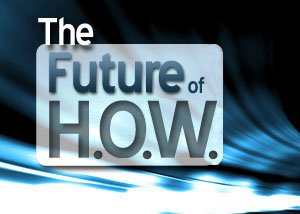The End of Hype
 In 1989, filmmaker Robert Zemeckis took the immensely popular Back to the Future franchise and painted a picture of the future in the year 2015. 25 years later, we don’t have hoverboards as the movie Back to the Future II depicted, but we do have stunning technologies that were simply beyond our comprehension at the time.
In 1989, filmmaker Robert Zemeckis took the immensely popular Back to the Future franchise and painted a picture of the future in the year 2015. 25 years later, we don’t have hoverboards as the movie Back to the Future II depicted, but we do have stunning technologies that were simply beyond our comprehension at the time.
Movies are the canvas for over-the-top concepts, future-forward designs and hyped promises. The real world, however, has grown cynical and tired of the hype. Entire memes dominate social media streams that poke fun at the ridiculous, the over-promised and the under-delivered.
Value Proposition – Not Hype
We’ve not realized the sci-fi version of our future in terms of the exotic, but what we do have is a greater capacity for more at our fingertips than we had imagined… So what do churches need at their fingertips?
What would not be an additive, but be so fundamentally different that a church would behave differently based on how a manufacturer or integrator worked in the marketplace? The first thing is maybe truth in advertising. Think of the profound difference between hyped advertising versus what you’re promising is what the future really will be like for your clients?
In today’s future, it’s so much easier for a prospect to find out what others think of your brand and products. Google and social media have changed how a person can quickly look past hyped marketing into real-world results. You can’t hide behind full-page, full color slick ads with cliché tag lines, because the consumer is now better informed than your advertising.
Something More Than Truth In Advertising
What would it look like for a brand to say things like:
“We believe in more than truth in advertising; we believe in truth in our products.”
“We believe in the honesty of our product’s performance in your context and being able to give you what you actually expect to get.”
“We won’t sell you hype. We’ll sell you our brand that stands behind you.”
“Any hype that you hear will come from raving fans who love what we do. And for those who don’t love what we do, we will also give them a voice because we value constructive feedback to help improve how we deliver to the church market.”
Your brand needs to learn to love to talk with people who don’t yet use your products. Your brand needs to define what makes your solutions stand apart — and not just superior craftsmanship or quality, but a track record of proving that you’re going to ensure clients are making the most of your products and ensuring what they buy works well for them.
Clearly, this goes well beyond advertising to training, education, communication channels and earned trust. Your advertising should point to these as the total, holistic value of your brand; not just the shiny new product of the moment.
Honest Means Telling It Like It Is
Everyone knows that all technology has a failure rate. It may be small percentage, but people accept that at some point technology will fail. What if your brand talked about this elephant in the room by saying something like “Because technology is imperfect, we embrace the imperfect and make it right through consistent above-and-beyond service.”
There’s no hype in that, but there is a lot of value in that position. What you’re doing is setting the stage for truth in advertising and the increased credibility of your brand.
Some of your best customer testimonials are those that talk about how your brand made things right and went above-and-beyond when things didn’t go right. These real-life, painful experiences are a part of every tech’s life – they have experienced it before and will experience it again. Don’t hide that fact, but address it as a possibility that you’re ready to solve. I’d go so far as to submit that your most loyal fans are made up of a 50/50 split of people who have never had your technology fail them and those who have, but had things made right. That’s earned loyalty in both cases!
In The Near Future
I can imagine a day when I see a commercial that depicts a client experiencing a failure of the brand’s technology and the voice over saying, “We do our best to make perfect technology, but sometimes things don’t work the way we planned. In those rare moments, you need to know (brand name) is going to stand behind you, not just our products. We’ll never over promise that our products will work for you forever because no one makes flawless products — no one does. And while we don’t always get it right, we will always make it right. That’s our perfection: it’s in standing behind you as you stand behind our products.”
That’s powerful! It’s honest! It’s accurate. It paints a promising future that can actually be realized by churches everywhere that have experienced a technology failure at a key moment. That is deeply resonating with what they believe, not just what they hope.
That’s a powerful promise and meaningful advertising — not overdone hype. The future may not include hoverboards, but it should include a vision for the future that stretches our imagination without promising these advances with every new product release.





